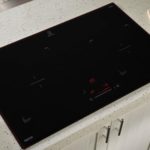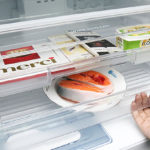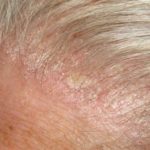Hiccupping is not dangerous for babies and usually goes away on its own, but it can be annoying and upsetting for your little one, and may even cause spitting up. Try these tips to help soothe your baby’s hiccups.
1. Causes of Hiccups in Babies
Gastroesophageal Reflux
Food flowing back up from the stomach to the esophagus can cause irritation and trigger the diaphragm to spasm, resulting in hiccups. This is more common in infants due to their underdeveloped lower esophageal sphincter.
Overfeeding or Gulping Milk

When a baby is overfed, milk can pool and become difficult to digest. Drinking cold milk can also cause hiccups as it cools the stomach, affecting its function. This, along with a weakened stomach, can cause air to flow back up and result in hiccups.
Swallowing Air
Bottle-fed babies may swallow more air as milk flows faster from a bottle than the breast. Excess air intake can stretch and distend the stomach, leading to hiccups and irritability.
Allergies
Your baby may experience esophagitis if they are allergic to proteins in formula milk or, less commonly, breast milk. Additionally, breastfed babies can also react to certain foods their mother consumes.
Asthma
If your baby has asthma, their lung airways become inflamed, restricting airflow and causing wheezing. This can lead to diaphragm spasms and hiccups.
Inhaling Pollutants
As an infant’s respiratory system is still developing, inhaling pollutants or smoke can irritate the throat and damage the diaphragm, triggering hiccups.
Body Temperature Changes
Sudden changes in body temperature can cause muscles to contract, including the diaphragm, leading to hiccups.
2. Remedies for Baby Hiccups
Offer Water or Milk
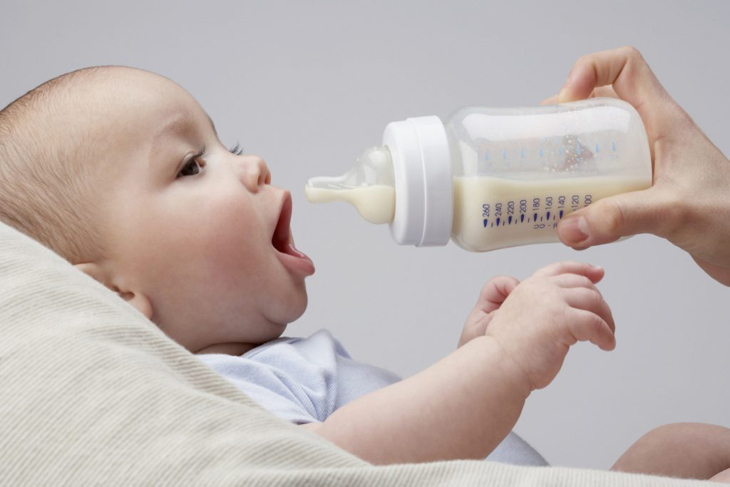
Encourage your baby to drink water, as hydration can help ease hiccups. For infants, offer the breast or a bottle. For older babies who are eating solids, try giving small spoonfuls of water, up to 100 ml. Toddlers can sip small amounts of water and practice deep breathing.
Plug Your Baby’s Ears or Nose
Gently plug your baby’s ears with your fingers for half a minute, or try holding their nose and closing their mouth for a few seconds, repeating up to 15 times if needed.
Give a Gentle Back Massage
Place your baby in an upright position and give them a gentle back massage. If your baby can’t sit yet, lay them on their tummy and massage their back to help relax their diaphragm and ease hiccups.
Honey Tongue Coating (for Babies Over 1 Year Old)
Coating your baby’s tongue with honey can help soothe hiccups, but only do this for babies over 1 year old as honey can cause infant botulism.
Adjust Bottle-Feeding Position

If your baby frequently gets hiccups after feeding, try adjusting their bottle-feeding position to reduce air intake. Also, check the bottle’s nipple for tears that may let air in.
For older babies who hiccup frequently, try boiling fennel seeds in water for 15 minutes, letting it cool, and then offering it to your child in small amounts.
Give Something Sweet
If your baby is eating solids and gets hiccups, place a small amount of sugar under their tongue or on a pacifier or your finger for them to suck on. Ensure your finger and the pacifier are clean.
Keep Baby Upright After Feeding
After feeding, hold your baby in an upright position for about 15 minutes to relax their diaphragm and prevent hiccups.
Distract Your Baby
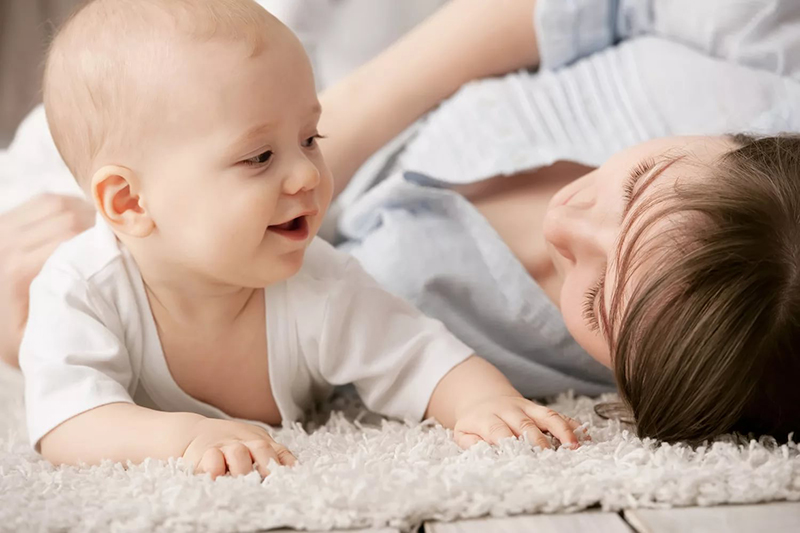
Engage your baby in play or another activity to take their mind off the hiccups and help them pass more quickly.
Try these tips to help soothe your baby’s hiccups! If your baby is over 10 months old and hiccups frequently, consult your healthcare provider for further advice.
3. What Not to Do When Your Baby Has Hiccups
Startling Your Baby
Although a loud noise may stop hiccups, it can also harm your baby’s eardrums and spine.
Giving Sour Candy
While sour candy can help adults with hiccups, it’s not suitable for babies due to its high acid content, which can irritate their stomachs.
Patting Your Baby’s Back
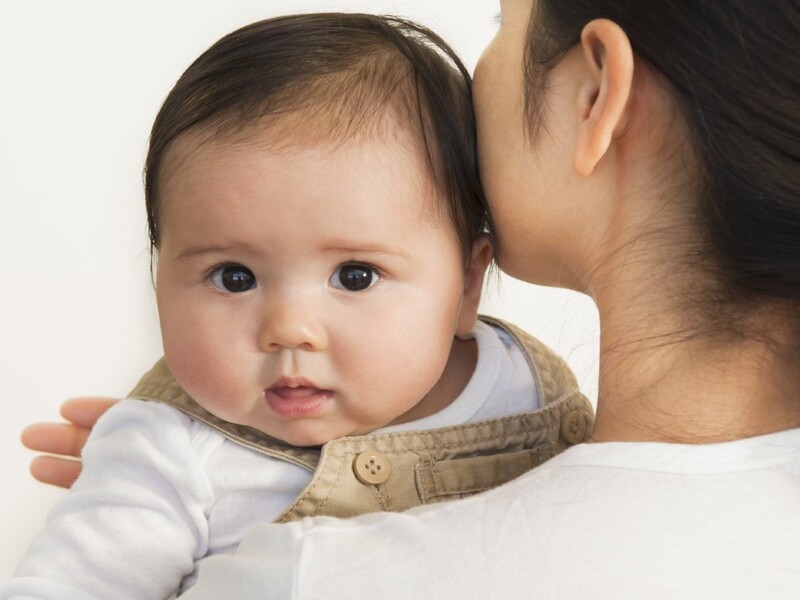
Patting your baby’s back can be harmful to their ligaments and spine.
Pressing on Your Baby’s Eyeballs
As your baby’s eye muscles are still developing, avoid pressing on their eyeballs, even gently, as it can cause damage.
Pulling Your Baby’s Tongue or Jaw
Never pull on your baby’s tongue or jaw to stop hiccups, as this can be dangerous and cause injury.
4. When to See a Doctor
Frequent Hiccups with Reflux Symptoms
If your baby’s hiccups are accompanied by spitting up, burping, or crying, and they have other reflux symptoms, consult your doctor.
Hiccups During Sleep or Feeding
If your baby frequently hiccups while sleeping or feeding, it’s best to get them checked by a doctor.
Prolonged Hiccups with Wheezing
If your baby’s hiccups last for hours or days and are accompanied by wheezing, don’t delay in seeking medical attention.
We hope this information helps new parents understand hiccups in babies and provides effective remedies to soothe their little ones. Always consult your healthcare provider if you have any concerns.

























